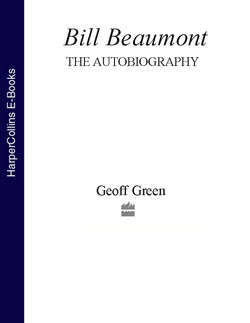Читать книгу Bill Beaumont: The Autobiography - Bill Beaumont - Страница 11
ОглавлениеCHAPTER FOUR
Lion cub
Although I realised I was the Lions sixth-choice second row I wasn’t going to quibble, and I started hastily clearing the decks at work. The adrenalin at that stage was flowing and my first task was to ring Fylde secretary Peter Makin. I had been appointed captain for the following season but told Peter that, as I wouldn’t be starting the new season because of the tour, I wanted scrum-half Micky Weir to take on the role. Micky took on the responsibility and did a fantastic job – such a good job, in fact, that I never achieved my ambition of becoming club skipper. As I became even more heavily involved with England I decided to put the club job on the back burner until I stepped down from the international arena, but injury put paid to any such plan.
Micky and Peter came round to wish me all the best and speed me on my way, and Hilary travelled down with me, but it was a somewhat pensive William Beaumont who arrived in London to collect his gear and jet off to the other side of the world. Instead of feeling over the moon, I felt heartbroken. I remember wondering why on earth I had agreed to travel. I had just got married, my honeymoon had been postponed yet again and I experienced the same empty feeling that had marked my return to boarding school as a youngster.
I had to meet John Lawrence, secretary of the Four Home Unions Committee, at a Club in London in order to be measured up for my Lions blazer and flannels, so we set off a little late to drive to Heathrow to catch the flight to Auckland which, just to stop me getting bored, was dropping in at Los Angeles, Hawaii and Fiji en route. If I had mixed feelings about having to leave Hilary to join the Lions, I felt all the more like turning around and going back home when a crash in the underpass on the approach to Heathrow effectively brought traffic to a standstill. There was nothing else for it. I had to grab my kit-bag and my new Lions outfit and leg it through the tunnel to the check-in desk at the terminal, arriving only just in time for the flight. It was a very hot day and I was saturated in perspiration, so I felt sorry for the poor devil who had to spend all those hours sitting next to me on the aircraft.
It seemed like forever before the plane touched down in Auckland. I had been told to wait in the arrivals hall where I would be met by a New Zealand rugby official who would ensure I was placed on the correct onward flight to Christchurch on the south island, the Lions’ next port of call after travelling from Invercargill, where they had beaten Southland. By that stage, with the first Test approaching, they had chalked up eight straight victories. I was handed a bundle of Auckland newspapers to hand over to a guy called ‘Doc’ Murdoch. He was a great guy: a Kiwi who was travelling with the Lions as a sort of physiotherapist-cum-baggage man. Quite apart from working on our bodies he also had responsibility for moving mountains of kit around the country. He had worked with the Lions in 1971 and was chuffed that they asked especially for his services again. As a mark of respect for someone who was popular with the entire party, we ended up paying for him to travel to Fiji with us at the end of the tour.
When I arrived in Christchurch, feeling shattered from having spent more than 30 hours squashed into an aircraft seat in the economy section, I was met by crisp, frosty weather and Russ Thomas, the New Zealand official who later managed the All Blacks side that the North beat so memorably at Otley two years later. Russ took me to meet my fellow Lions, and I remember Willie Duggan, the Irishman, saying to me, ‘If you have any bloody sense you will get on the next plane back home.’
As I was to discover, that particular tour was marred by atrocious weather and it was usually a case of mud, glorious mud. The photograph of a bedraggled Fran Cotton became the company logo when he set up Cotton Traders with Steve Smith and people still walk around with the picture on the front of their tee-shirts. It didn’t take me too long to work out that it was a far from happy tour. Some Lions tours have been noticeable for a wonderful spirit, whereas others have all but fallen apart; this one definitely fell into the latter category (to some extent, the 2001 trip to Australia wasn’t exactly a bundle of laughs either). In the end it all comes down to good, firm management, and that’s something they had in abundance in South Africa in 1997 when Fran went as manager and had Ian McGeechan and Jim Telfer as a well-balanced coaching team right out of the ‘good-cop, bad-cop’ mould.
